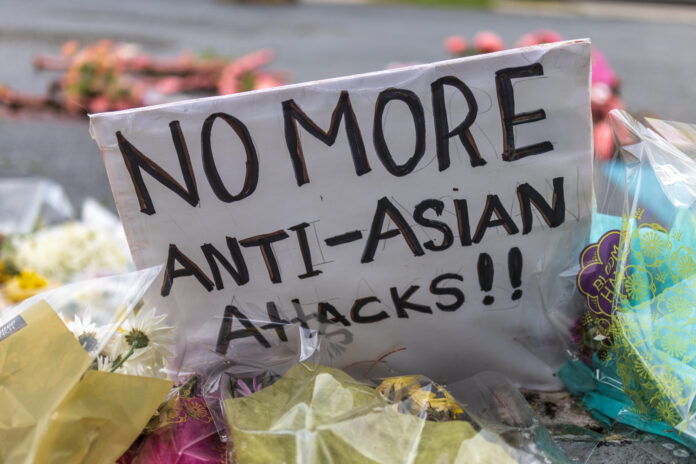by Akemi Tamanaha, Associate Editor
Photo by Adam Chau
New data from 2020 shows that hate crimes in California were at their highest reported level in more than a decade.
In a Wednesday morning press conference at Oakland’s Chinatown, California Attorney General Rob Bonta briefly previewed new reports, resources and guidelines created to help tackle the increase in hate crimes.
He opened the press conference by acknowledging how anxious Asian Americans have felt throughout the pandemic as hate crimes against them continued to rise. Bonta, a Filipino American, noted that he offered to drive his mother into the city because he didn’t think it was safe.
“I want you to know that this state sees you, to the Asian American community,” Bonta said. “That you’re being heard, and we’re going to keep doing our part to fight on your behalf.”
Bonta announced that in addition to a general report on hate crimes, his office had issued a special report on anti-Asian hate crimes.
The report, which focused on data from 2020 only, found that the highest number of reported anti-Asian hate crimes occurred in March and April of 2020. There was a 107 percent increase in hate crimes targeting the Asian American community, from 43 reported hate crimes in 2019 to 89 reported hate crimes in 2020.
Data also showed that hate crimes have increased overall across the state. At 1,330 hate crimes events in 2020, hate crimes in California are at their highest reported level in over a decade.
Anti-Black hate crimes were the most prevalent hate crimes. In 2020, there were 456 reported anti-black hate crimes, an 87 percent increase from 2019.
Bonta also reminded the media that despite the spike in hate crimes shown by the data, many hate crimes still go unreported. He announced that his office would be releasing a “Law Enforcement Bulletin and Prosecutor Guidance” to help properly identify and investigate hate crimes.
The attorney general’s office will also be releasing brochures in more than two dozen languages to help members of the public identify and report hate crimes, as well as obtain assistance if necessary.
Bonta stated that confusion over whether an incident should be considered a hate crime should not stop a victim from reporting.
“If you’re in doubt or you’re in danger, we want you to report it. And will take it from there,” Bonta said.
Hate crime reporting also hinges on trust between law enforcement and the public. The law enforcement bulletin provides guidelines for building relationships with local communities who may be too wary of law enforcement to come forward.
The prosecutor guidelines discuss solutions to help stem the rise in hate crimes. It stresses the importance of “immediate and consistent contact with victims and affected communities” in ensuring successful prosecutions of hate crimes. It also examines “alternative forms of sentencing or restorative justice approaches to hate crime prosecutions.”
“I’m hoping that by providing all these solutions we are able to let the public know if you are facing a hate crime or you are the victims of crimes, please come forward,” Carl Chan, the President of Oakland’s Chinatown Chamber of commerce and a hate crime victim, said at the press conference. “There are solutions. There are information. There will be help from the State Attorney General.
AsAmNews has Asian America in its heart. We’re an all-volunteer effort of dedicated staff and interns. Check out our new Instagram account. Go to our Twitter feed and Facebook page for more content. Please consider interning, joining our staff, or making a financial contribution to support us.



